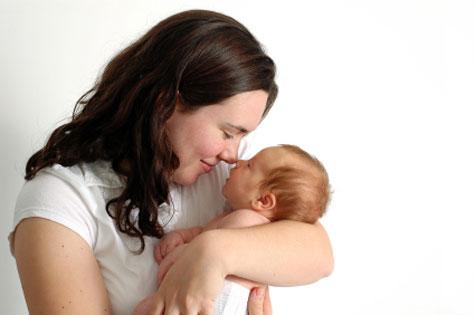The study found that one in five new mothers reported exhaustion at every point during the study (three, six, 12 and 18 months postpartum). It also found that, contrary to popular belief, women were not likely to recover more quickly from a caesarean birth than from a vaginal birth.
Involving more than 1500 first time mothers, the study investigated common morbidities in the 18 months after the birth and found those mothers who had a caesarean birth experienced a similar number of postpartum health problems as women who had a vaginal birth.
The study also found that postoperative pain associated with caesarean birth was more common than perineal pain following a vaginal birth.
Postoperative caesarean wound pain was reported by 89 per cent of mothers who had a caesarean birth during their hospital stay, compared with 73 per cent of women who reported perineal pain after having a vaginal birth.
At three and six months postpartum, the number of women experiencing pain dropped to 56 and 19 per cent respectively for caesarean birth, compared with 42 and nine per cent for those who had a natural birth.
Compared with women who had a vaginal birth, women who had a caesarean birth were more likely to report extreme tiredness and back pain at six and 12 months postpartum.
Doctor Hannah Woolhouse, who led the study, said as well as the study showing that caesarean section did not result in women experiencing less overall morbidity in comparison to women who had a vaginal birth, it also highlighted that exhaustion was the most common complaint by new mothers.
“The high levels of exhaustion reported by women at every point during the study is an extremely important finding. Our study highlights the ongoing, long-term impact of childbirth and parenting on women’s health.”
“Tiredness and exhaustion for new mothers is often dismissed as ‘par for the course’. However, similar levels of chronic, ongoing, exhaustion reported at any other time would most likely be considered a significant concern.”
“Our findings suggest that new mums in Australia may be not receiving enough social and practical support. Many new mums feel like they should be able to cope with the demands of caring for a new baby on their own, and therefore asking for help can be difficult.”
“Getting lots of support from family and friends is really important during this time. Coping strategies which may help new mums during this time can be as simple as getting some regular time to yourself, or getting the chance to have some extra sleep – but these things often require the support of other people.”
Researchers say another important finding from the study is the fact that some health problems, such as tiredness, frequent coughs, colds and back pain actually increase up to 18 months postpartum.


















__small.png)










